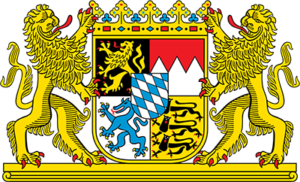Eisbach receives USD 4.5 million investment from Cancer Focus Fund to support Phase 1/2 trial of lead candidate EIS-12656
The clinical trial in patients with refractory advanced solid tumors will be conducted at MD Anderson Cancer Center.
March, 2024

© istock / demaerre
Cancer Focus Fund is investing $4.5 million to support a Phase 1/2 clinical trial of Eisbach’s lead candidate, EIS-12656.
“Eisbach’s distinctive and scientifically sophisticated approach to addressing common difficult-to-treat cancers aligns perfectly with our goals at Cancer Focus Fund. We aim to help innovative young companies like Eisbach to rapidly advance unusually promising new cancer drugs into clinical trials with the help of the expert researchers and clinicians at MD Anderson.”
Ross Barrett, a founder and Managing Partner of Cancer Focus Fund.
IZB-based Eisbach Bio GmbH (Eisbach), a clinical-stage biotechnology company pioneering a new class of cancer medicines leveraging synthetic lethality to target specific proteins that are essential for the survival of cancer cells, and Cancer Focus Fund, LP, a unique investment fund established in collaboration with The University of Texas MD Anderson Cancer Center (MD Anderson) to provide funding and clinical expertise to advance promising cancer therapies, announced that Cancer Focus Fund is investing USD 4.5 million to support a Phase 1/2 clinical trial of Eisbach’s lead candidate, EIS-12656, which will be conducted at MD Anderson.
EIS-12656 is a small molecule designed to treat tumors that are refractory or resistant to PARP inhibitors. PARP enzymes are involved in critical DNA repair processes. By hindering DNA repair, PARP inhibitors cause tumor cell death, and they have been effective therapies for many ovarian, breast, prostate, and pancreatic cancers. However, their use has been limited by serious toxicities and the development of resistance. EIS-12656 inhibits the chromatin remodeling enzyme ALC1, which is critical to the DNA repair process associated with PARP activation. EIS-12656 was developed by Eisbach to disrupt DNA-damage-dependent PARP activation at an early stage of the repair process. In preclinical studies EIS-12656 overcame PARP inhibitor resistance and demonstrated a benign toxicity profile and blood-brain-barrier penetrance, as well as synergy with PARP inhibitors and other standard-of-care therapies.
“Overcoming the widespread resistance and debilitating side-effects of PARP inhibitors required us to re-think how we tackle the genetic vulnerabilities prevalent in these tumors,” said Dr. Adrian Schomburg, Founder and CEO of Eisbach. “EIS-12656 is a first-in-class small molecule that targets and shuts down the molecular process that reorganizes the tumor genome upon DNA damage and PARP activation – a process that is essential to the survival of cancer cells. Based on its exceptional safety profile and promising activity in preclinical studies, we believe that EIS-12656 has the potential to benefit the many patients with tumors refractory to PARP inhibitors –patients who have few treatment options available today.”
Dr. Andreas Ladurner, Founder and CSO of Eisbach, and Professor and Chair of Physiological Chemistry at Ludwig-Maximilians-University of Munich, commented, “Most cancers contain genome reorganization mechanisms that play critical and very specific roles in tumor biology. By identifying how each of these vital mechanisms is selectively regulated, we can exploit unique molecular vulnerabilities. This approach holds great promise for the discovery of new cancer drugs that are both selective and safe.”
“Eisbach’s distinctive and scientifically sophisticated approach to addressing common difficult-to-treat cancers aligns perfectly with our goals at Cancer Focus Fund,” said Ross Barrett, a founder and Managing Partner of Cancer Focus Fund. “We aim to help innovative young companies like Eisbach to rapidly advance unusually promising new cancer drugs into clinical trials with the help of the expert researchers and clinicians at MD Anderson. EIS-12656 has demonstrated the potential to treat many relapsed and refractory tumors more effectively and with fewer side effects than current therapies, and we look forward to following the progress of this exciting first-in-class compound as it proceeds in clinical development. We also are delighted to expand our geographic reach with this first investment in a biotech company based in Germany, with its rich history of biomedical innovation.”
Timothy A. Yap, M.B.B.S., Ph.D., Professor of Investigational Cancer Therapeutics and Vice President and Head of Clinical Development in the Therapeutics Discovery division at MD Anderson, will serve as Principal Investigator of the trial.
About the EIS-12656 Phase 1/2 Clinical Trial
The Phase 1/2 open label study will assess the safety, tolerability, and efficacy of EIS-12656 as solo therapy in patients with various solid tumors. The study will involve dose escalation of EIS-12656 monotherapy to establish safety and determine the maximum tolerated dose and recommended Phase 2 dose. In the following stage, dose expansion modules will be conducted with EIS-12656 monotherapy. Additional modules will involve patients progressing under PARP inhibitor treatment.
About EIS-12656, a small molecule inhibitor of ALC1 (CHD1L)
EIS-12656, the lead oncology program at Eisbach, is a first-in-class allosteric small molecule inhibitor targeting the PARP-activated chromatin remodeling helicase ALC1 (also known as CHD1L). The cancer-relevant genome reorganization induced by PARP activation is critically dependent on ALC1 activity. Genetic data have revealed that disruption of this ALC1 activity greatly potentiates PARP inhibitors and produces synthetic lethality in BRCA gene mutations. EIS-12656 was developed by exploiting Eisbach’s ALLOS drug discovery platform that recapitulates the selective, unique, and physiological activation mechanism of its target enzymes in the laboratory. Preclinical data showed that EIS-12656 disrupted cancer cell growth by interfering with the DNA damage and repair (DDR) mechanisms of cancer cells while exhibiting a markedly superior toxicity profile in comparison with currently available therapies targeting DDR pathways. With its first-in-kind, allosteric inhibitory mechanism and superior toxicity profile, EIS-12656 may enable novel monotherapy applications and powerful combination therapies.
About Eisbach
Eisbach is a pioneering, clinical-stage biotech company focused on precision oncology, aiming to disrupt tumor growth by targeting genetic vulnerabilities. The company develops allosteric drugs that selectively disrupt molecular mechanisms, also known as molecular machines, which are vital for tumor genome reorganization. Eisbach combines the genetic vulnerabilities present in defined tumors (synthetic lethality) with its proprietary drug discovery platform, ALLOS, which targets the unique molecular vulnerability of its drug targets, to create first-in-class therapies with fewer side effects. The company’s pipeline includes several small molecule candidates targeting chromatin reorganization that enable potent combination therapies and suppress resistance mechanisms in cancer treatment. For more information, visit www.eisbach.bio and follow us on LinkedIn.
About Cancer Focus Fund
The Cancer Focus Fund LP is a unique investment fund established in collaboration with The University of Texas MD Anderson Cancer Center (MD Anserson). The fund provides investment support to advance promising cancer therapies that are close to being tested in humans or are in early clinical development, as well as the clinical trial expertise and infrastructure of MD Anderson and strategic partners Ochsner Health System Precision Cancer Therapies Program New Orleans and the LSU Feist Weiller Cancer Center Shreveport. The Fund’s objective is to leverage this unique combination to provide investors with superior risk-adjusted returns. In collaboration with partner MD Anderson, the Cancer Focus Fund provides both capital and translational research expertise with the goal of accelerating the development of novel cancer therapies that result in better outcomes for patients while generating returns for investors.



